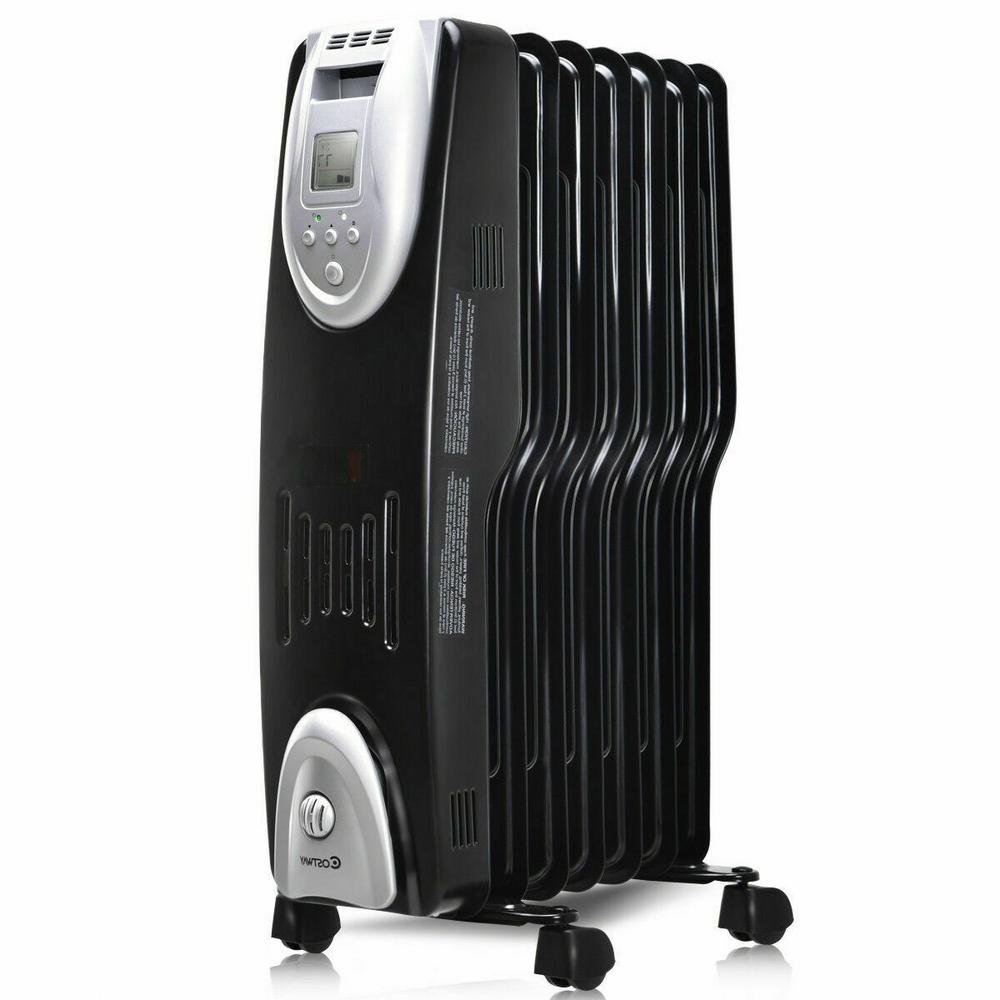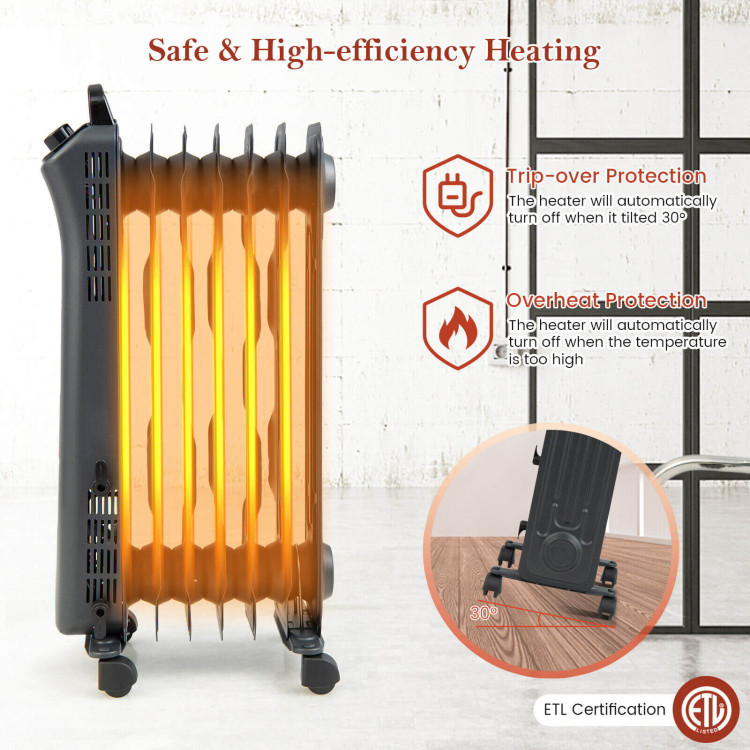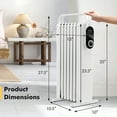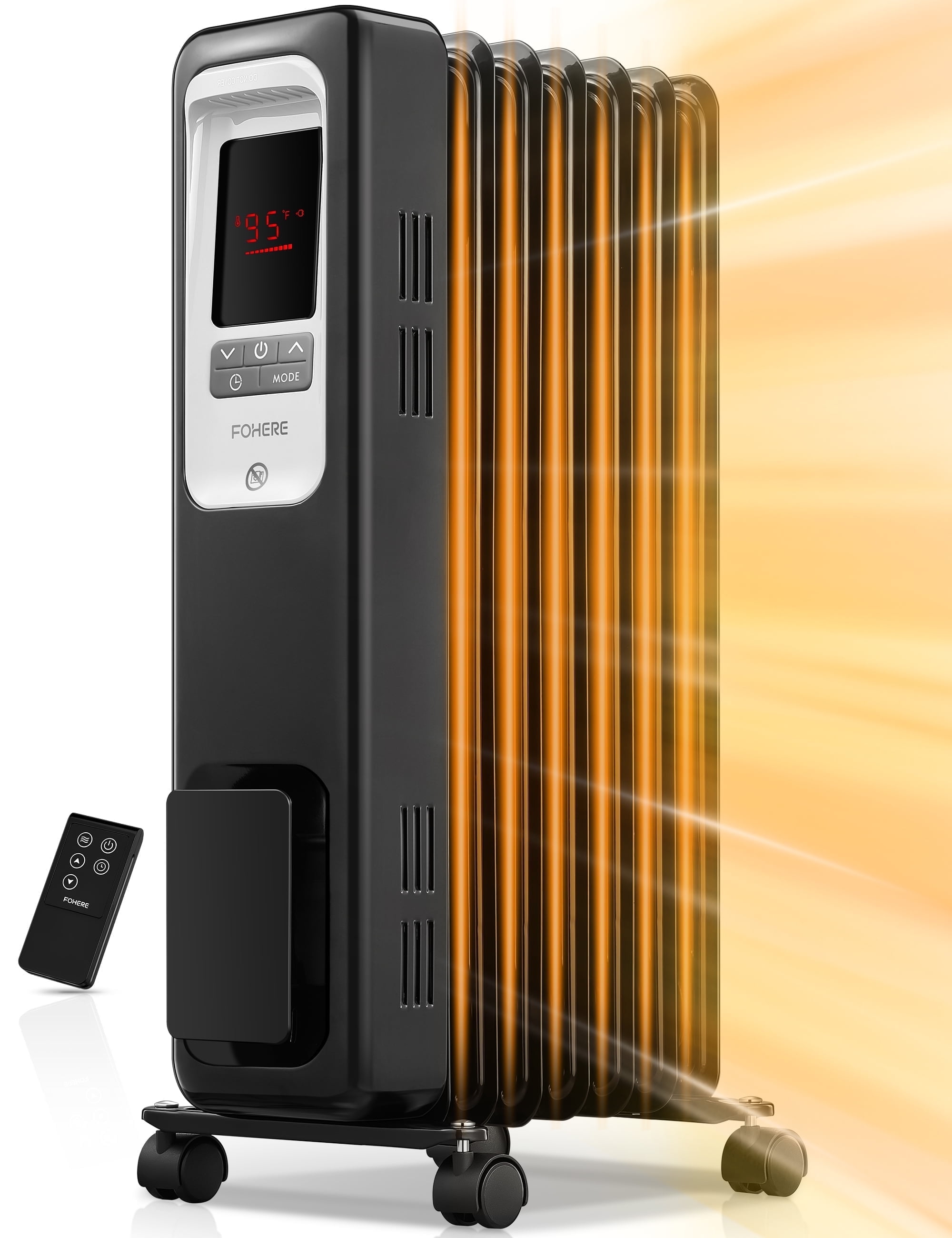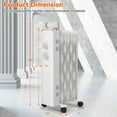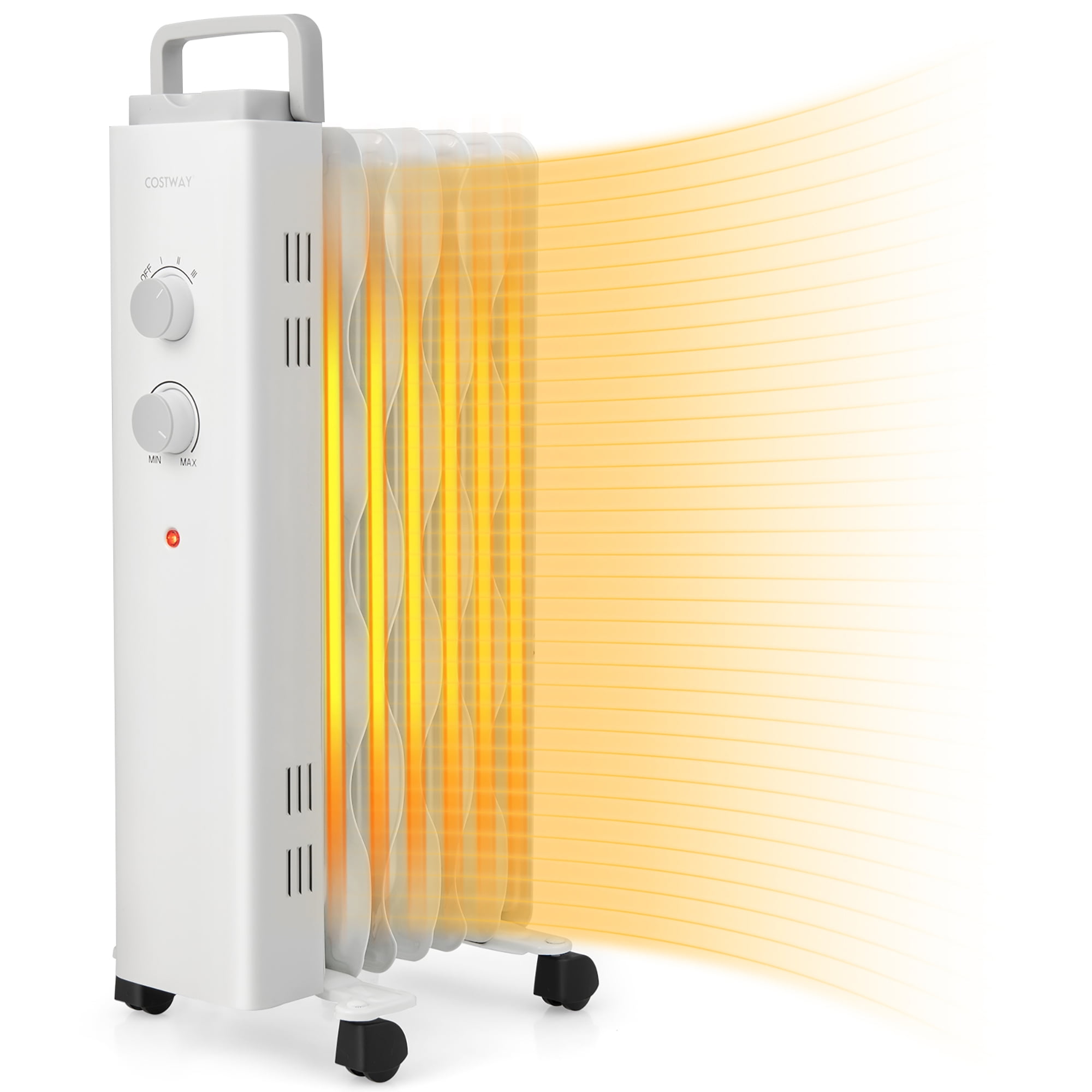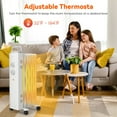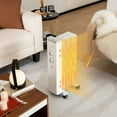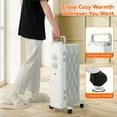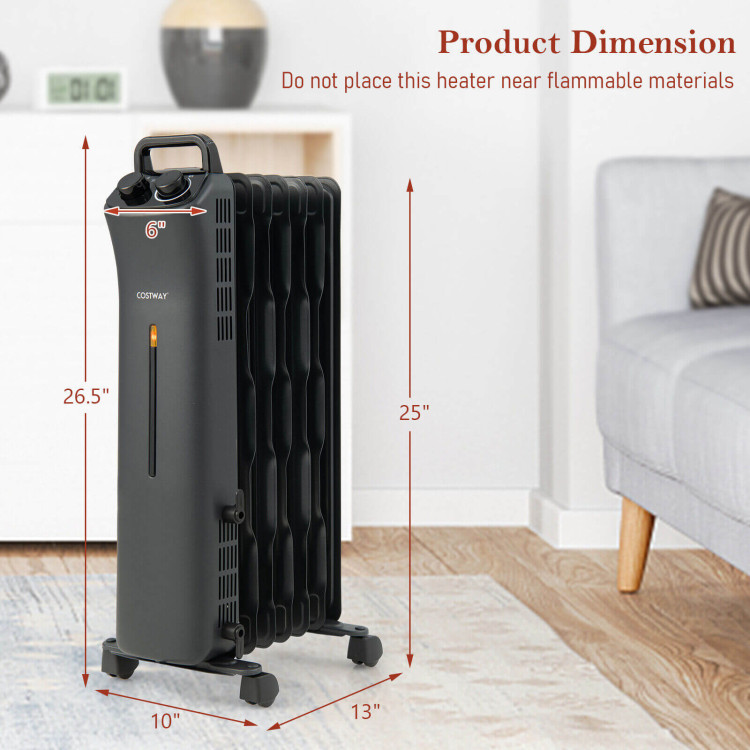Are Oil Filled Space Heaters Safe

As winter's chill deepens, many Americans seek affordable and effective ways to heat their homes, often turning to portable space heaters. Among the various types available, oil-filled space heaters are frequently touted for their energy efficiency and safety. But a crucial question persists: are these devices truly safe, or do they harbor hidden risks that consumers should be aware of?
This article delves into the safety of oil-filled space heaters, examining their operational mechanisms, potential hazards, and safety features. By analyzing data from reputable organizations and consulting with experts, we aim to provide a balanced assessment of their safety profile. Understanding these factors will empower readers to make informed decisions about whether an oil-filled space heater is the right choice for their heating needs.
Understanding Oil-Filled Space Heaters
Oil-filled space heaters, also known as oil-filled radiators, function differently from traditional space heaters that use exposed heating elements. They contain a thermally conductive oil, typically diathermic oil, which is heated by an internal electric resistance element.
This heated oil circulates within the heater's fins, radiating warmth into the surrounding environment. The oil itself doesn't burn or get consumed; it simply acts as a heat transfer medium, making the surface of the heater warm.
Safety Features and Operational Risks
Oil-filled space heaters are generally considered safer than some other types of space heaters due to several built-in safety features. Many models include automatic shut-off mechanisms that activate if the heater is tipped over.
Overheat protection is another common feature, shutting down the heater if it reaches an unsafe temperature. These features are designed to prevent fires and reduce the risk of burns.
However, these safety features aren't foolproof, and potential risks remain. One concern is the possibility of leaks, although rare, if the heater's casing is damaged.
While the oil itself isn't flammable, an electrical malfunction could still ignite nearby combustible materials. Furthermore, even with safety features, the surface of the heater can become hot enough to cause burns if touched for an extended period.
Expert Opinions and Industry Standards
Consumer safety organizations like the Consumer Product Safety Commission (CPSC) offer guidelines on safe space heater usage, regardless of type. They recommend keeping heaters at least three feet away from flammable materials like curtains, bedding, and furniture.
The CPSC also emphasizes the importance of using space heaters on a level, stable surface to prevent tipping. Additionally, it is crucial to plug space heaters directly into a wall outlet, avoiding extension cords or power strips.
According to Electrical Safety Foundation International (ESFI), space heaters should never be left unattended, especially when children or pets are present. Regular inspection of the power cord for damage is also critical.
Industry standards, set by organizations like UL (Underwriters Laboratories), dictate the safety requirements that manufacturers must meet for space heaters to be certified. These standards cover aspects like electrical safety, fire resistance, and stability.
Comparative Analysis with Other Space Heaters
Compared to radiant space heaters, which use exposed heating elements, oil-filled heaters pose a lower risk of immediate burns. The surface temperature of an oil-filled heater is generally lower and more evenly distributed.
However, ceramic space heaters often come with similar safety features, like tip-over and overheat protection. Forced-air heaters, while efficient at quickly warming a room, can be noisier and may stir up dust and allergens.
Each type of space heater has its own set of advantages and disadvantages regarding safety and energy efficiency. Consumers should carefully weigh these factors based on their specific needs and circumstances.
Debunking Common Myths
One common misconception is that oil-filled space heaters are completely fireproof. While they are generally safer than some alternatives, they are not immune to causing fires if misused or malfunctioning.
Another myth is that oil-filled heaters are significantly more energy-efficient than other types. While they do retain heat for longer, providing a more consistent temperature, their overall energy consumption can be comparable to other space heaters of similar wattage.
Some believe the oil inside the heater needs to be refilled or replaced. This is false; the oil is sealed and doesn't require maintenance.
Practical Safety Tips for Oil-Filled Space Heater Use
To maximize safety when using an oil-filled space heater, adhere to these guidelines. Always read and follow the manufacturer's instructions carefully.
Place the heater on a flat, stable surface, away from flammable materials. Never leave the heater unattended, especially when children or pets are nearby.
Inspect the power cord regularly for damage and avoid using extension cords. Ensure the heater has functioning tip-over and overheat protection features.
The Future of Space Heater Safety
Ongoing technological advancements aim to enhance the safety and efficiency of space heaters. Smart space heaters, equipped with sensors and Wi-Fi connectivity, are becoming increasingly common.
These devices can offer features like remote control, energy monitoring, and enhanced safety alerts. Improved materials and designs are also contributing to safer and more durable space heaters.
Furthermore, increasing awareness and education among consumers about safe usage practices will play a crucial role in preventing accidents.
Conclusion
Oil-filled space heaters can be a safe and effective heating solution when used correctly and responsibly. Their design, coupled with built-in safety features, makes them generally safer than some alternatives.
However, it's crucial to recognize that no heating appliance is entirely without risk. By adhering to safety guidelines, debunking myths, and staying informed about technological advancements, consumers can minimize potential hazards and enjoy the warmth and comfort that oil-filled space heaters can provide.
Ultimately, the decision of whether to use an oil-filled space heater depends on individual circumstances and a thorough understanding of the associated risks and benefits. Prioritize safety above all else.
